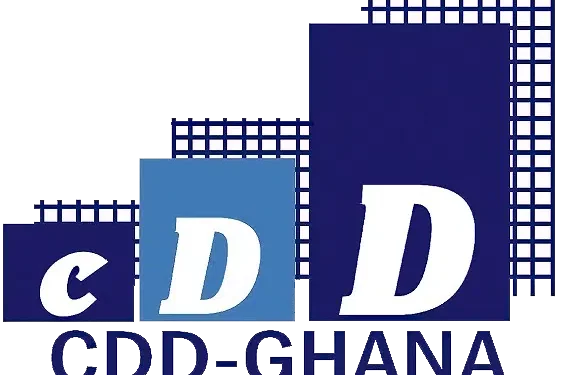CDD-GH Outlines Key Governance Issues And Proposals For Reforms Ahead Of 2024 Elections And Launch Of Party Manifestos
On December 7, 2024, Ghanaians will have the opportunity to elect a new president and 275 Members of Parliament (MPs). President Akufo-Addo will complete his second and final term at midnight on December 6, 2024. As is customary, political parties and presidential aspirants will present their manifestos ahead of the upcoming polls. These manifestos should ideally provide a blueprint for addressing the country’s myriad challenges.
Unlike previous election cycles in Ghana’s 4th Republic, this year’s manifestos must respond to unprecedented governance, socio-economic, and security challenges. These challenges include the worst economic crisis since the 1980s, national indebtedness, rampant government corruption, widening inequality, high and persistent youth unemployment, increasing poverty, weak institutions for accountability and local administration, a looming health and environmental crisis (exemplified by galamsey [illegal mining] ravaged forests and water bodies), and internal chieftaincy/tribal/land related conflicts. These issues are further compounded by threats of terrorism and extremism from neighboring countries and the Sahel, as well as rapidly changing global dynamics that expose the country to malign interference from external actors.
In the Center’s assessment, persistent misgovernance is at the core of these problems and is beginning to threaten the foundations of the 4th Republic. The trends portend danger for Ghana’s 31-year-old democracy, as evidenced by the recent Afrobarometer analysis report (African Insights). The report reveals that satisfaction with democracy in Ghana has dropped by 23% between 2011 and 2023.
In the Center’s view, any aspiring president or governing party’s manifesto must commit to the following proposals with clear timelines if they wish to demonstrate to Ghanaians that they are serious about tackling the country’s challenges in the short to medium term.
Priority Governance Reform Commitments for Election 2024
- Revive Local Governance, Local Democracy, and Activate Local Citizenship
The current local government system is ineffective and broken. A post-election survey on local government conducted by CDD-Ghana in 2021 reported that 73% of Ghanaians were dissatisfied with their local assemblies’ handling of community development challenges. The survey also revealed that 76% of citizens want their
Metropolitan/Municipal/District Chief Executives (MMDCEs) to be elected, and 71% prefer these elections to be non-partisan. Additionally, 68% want the current de jure non-partisan assembly system to remain. All studies and analyses show that the absence of elected mayors at the local level is undermining accountability, local democracy, and development in the districts. There is currently a disagreement between the incumbent New Patriotic Party (NPP) and the main opposition party, the National Democratic Congress (NDC), over introducing partisan politics into the local government system. Suppose a national consensus on the introduction of partisanship cannot be reached, at the very least. In that case, there is consensus on elections, which should be straightforward to achieve through a two-thirds majority vote in Parliament.
∙ Amend Article 243(1) of the 1992 Constitution through a super-majority vote of all Members of Parliament (MPs) to allow the election of MMDCEs before 2027 when the tenure of the current assembly will expire.
∙ In the absence of a multistakeholder consensus on whether the election of MMDCEs and/or assembly members should be partisan or non-partisan, organize a referendum for Ghanaian adult citizens to choose, by amending Article 55(3) of the 1992 Constitution.
Implement other consequential and complementary institutional and policy reforms to enhance local governance, notably:
∙ Stagger the MMDCE election process by commencing with metropolitan areas (the big cities) before fully rolling it out across all districts.
∙ Amalgamate district boundaries, particularly in the big cities, to make local government more meaningful and effective. For example, amalgamate the over 30 assemblies into five or fewer administrative zones to avoid electing over 30 mayors in Greater Accra alone.
∙ Implement substantial financial and administrative reforms, including fiscal decentralization (increasing total revenue transfers to the districts), expanding local government service level capacity, and introducing new rules on center-regional and district relations.
∙ Activate local democracy and citizen activism by designating January 7 Constitution Day holiday as ‘Citizens Day.’ On Citizens Day, all assembly members should organize a community meeting for residents to discuss community challenges and efforts to address them. It should also be used for voluntary community activities.
- Combat Pervasive and Persistent Grand and Petty Public Sector Corruption
One of the biggest drivers of public sector corruption is the abundant opportunities for corrupt officials and their collaborators to exploit weak internal controls in public services to steal public money. Numerous public ethics prohibitions, such as influence peddling, conflict of interest, and nepotism, have not been properly codified. The passage of the decade-long Conduct of Public Officers (COPO) bill will help address this loophole, which is exploited daily by public officials to escape accountability. In its current state, the bill still needs significant improvement, particularly in strengthening its asset disclosure provisions and introducing new rules on unexplained wealth.
- Pass the Conduct of Public Officers Bill to establish a solid and effective asset and liabilities disclosure regime, conflict of interest rules, influence peddling, nepotism, gift-giving, and unexplained wealth rules and orders.
- Fulfill the Government of Ghana’s (GoG) commitments under the IMF program to enroll all public entities in the Government Integrated Financial Management System (GIFMIS) and integrate the Ghana Electronic Procurement Systems (GHANEPS) and human resources systems to monitor expenditures and reduce overspending.
- Reduce the Cost of Politics and Stop Corruption at the Source
The increasing monetization and rising cost of politics are corrupting the electoral process and fueling pervasive grand corruption in government. The current regime governing campaign and party financing is wholly inadequate. There is a need for new and comprehensive legislation and a regime to regulate the sector. This new regulation must set clear parameters for party and campaign donations and expenditures, establish a period of three or six months as the official campaign period, standardize and regulate internal party electoral processes and financing, and create a body to enforce the new rules.
- Pass comprehensive party and campaign financing legislation that sets clear rules on capping donations and expenditures for both internal and external party processes.
- Significantly Improve Governance and Productivity of State-Owned Enterprises (SOEs)
The Government of Ghana-supported IMF program notes that the poor performance of SOEs is a key contributor to Ghana’s fiscal crisis. Large SOEs like COCOBOD are facing significant financial challenges, while several entities continue to generate losses. A weakness of these SOEs is their corporate governance practices, as highlighted in the annual State Ownership Reports. The GoG commitments related to SOEs under the IMF program should be fulfilled. However, the most immediate action to reduce the fiscal burden and wastage of resources is to depoliticize appointments to management and boards of these entities. Often, the appointments are unmeritorious, and the individuals lack the competence and experience to run these institutions successfully. In addition, the poor decision to appoint Members of Parliament to sit on state boards must be stopped immediately. This practice has completely compromised all the accountability systems around SOEs.
- Appoint all CEOs based on merit, competence, and experience through an open and competitive process organized by the Public Services Commission and the State Interest and Governance Authority (SIGA).
- Appoint all Board Members based on merit, competence, and experience.
- Develop and implement director liability and eligibility requirements similar to those for board members of banks for all SOE board members.
- Preclude individuals with political party roles from serving as board members of SOEs.
- Prohibit the appointment of MPs to boards of SOEs.
- Amend the SIGA Act to reflect the new rules.
- Depoliticize the Public Service
- A politicized, unmeritocratic, and unproductive public service cannot deliver quality public services, economic development, and transformation. Over the years, the problems of the public service have deepened. Policy advisory functions have moved from technocrats to special advisors and development partners providing donor support. Most administrators and technocrats have been sidelined and have atrophied in the day to-day public policy-making and implementation process. This has left the entire public service unaccountable and ineffective, prone to crisis response and short-term problem fixing. The problems are too deep for any quick fixes; there must be a frank interrogation of the current challenges to direct effective solutions.
- Set up a Commission of Inquiry to investigate the drivers of politicization and ineffectiveness of the service.
- The Commission’s report should inform a new process and program of reform.
- Reform the NDPC to emphasize its independence and role in policy coordination, monitoring, reporting and evaluation.
- Constitutional Reform
As part of the structural reforms needed to address Ghana’s governance challenges, reforming the Constitution is imperative. Any effort to reactivate the constitutional reform process must be based on consensus-building.
∙ Submit proposals for implementing constitutional reform to Parliament within the new government’s first year for deliberation and adoption by Parliament after engaging all relevant stakeholders in society.
Conclusion
Ghana’s governance challenges are numerous and have persisted for a while without a genuine and sustained effort to address them. The window for self-correction and mitigation is closing. If Ghana is to emerge from the crisis stronger and reformed, citizens must see a clear plan and logic for confronting these challenges, starting with the manifestos. The commitments listed above, if implemented, will make government more accountable, effective, and responsive. The Center encourages all citizens to fully engage with the manifestos when unveiled and to test their political, technical, and financial feasibility.








